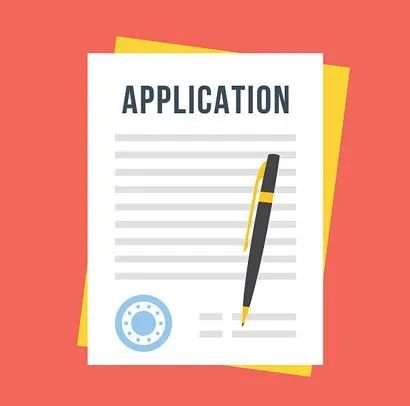Building Accurate, Audit-Ready Books: The Role of Tech in Property Accounting
Managing property finances is no small feat. Between rent collection, vendor payments, tax prep, and investor reporting, a lot is riding on how accurate your books are. And when audits come around? Everything needs to be airtight.
That’s where tech steps in.
Modern property accounting tools, like Rioo Property Accounting Management, are changing how teams manage finances, making it faster, easier, and more accurate than ever.
Why Accuracy in Property Accounting Matters
When you’re managing multiple properties (or even just one large portfolio), a single mistake in your books can snowball into bigger problems:
- Incorrect owner distributions
- Missed vendor payments
- Tax penalties or audit flags
- Misreported financials to investors
And let’s not forget the stress. Manual processes, scattered spreadsheets, and disconnected tools make accounting harder than it needs to be.
Common Challenges Property Managers Face
Managing property finances isn’t just about crunching numbers; it’s about keeping things clean, consistent, and trustworthy. But when your systems aren’t working together, even simple tasks can feel overwhelming.
Here are some of the most common pain points property managers run into:
1. Duplicate Data Entry
If you’re using one tool for lease tracking, another for maintenance, and yet another for accounting, chances are you’re entering the same information multiple times. That’s not only time-consuming, it increases the risk of errors and inconsistencies that can affect your entire financial workflow.
2. Hard-to-Track Income and Expenses
When financial data isn’t tied directly to individual properties or units, it’s tough to get a clear picture of profitability. You might know how much you’re making overall, but not whether each building is pulling its weight.
3. Inconsistent Chart of Accounts
Without a standardized chart of accounts, your team might be categorizing expenses differently. One person logs HVAC repairs under “repairs,” another under “maintenance.” The result? Messy books and inaccurate reporting.
4. Last-Minute Reporting Chaos
Audit or tax season shouldn’t mean pulling all-nighters. But when data is scattered across spreadsheets, emails, and PDF receipts, generating reports can take days, leaving room for errors and delays that hurt your credibility.
5. Manual Reconciliation Mistakes
Reconciling bank statements by hand leaves too much room for error. A single missed transaction or incorrect amount can throw off your entire balance sheet, and may go unnoticed until it’s too late.
What to Look for in Property Accounting Software
Not all platforms are created equal, especially when you’re managing finances across multiple properties. Choosing the right tool can save you hours every week and prevent costly mistakes.
Here’s what your accounting software should absolutely include:
- Accrual and cash-based accounting: Flexibility is key. Whether your team prefers cash-based or accrual accounting, your software should handle both accurately and seamlessly.
- Multi-property and multi-bank account tracking: You need visibility across all your buildings and bank accounts. A solid platform should let you track each one separately while still giving you a unified view.
- Automated recurring entries: Eliminate repetitive work. Your system should be able to auto-schedule rent, utility charges, and vendor payments so you don’t miss a thing.
- Permission controls: Not everyone needs access to everything. Choose software with role-based permissions to protect sensitive financial data and streamline workflows.
- Integration with other tools: Make sure your accounting connects smoothly with your leasing, maintenance, and CRM systems. One connected platform means fewer errors and better insights.
How Tech Helps Solve These Problems
Modern property management platforms are designed to tackle these financial headaches head-on. By bringing all your systems under one roof, the right tech makes your accounting cleaner, faster, and far more reliable.
Here’s how:
1. Single Source of Truth
A unified system means lease data, rent payments, expenses, and maintenance costs all flow into one place, automatically. No more copying data across platforms or second-guessing which version is up to date.
2. Property-Level Financial Tracking
With the right tools, every transaction is tied to a specific unit, property, or portfolio. You get real-time visibility into what’s earning money, what’s costing too much, and where you need to take action.
3. Standardized Accounting Templates
Modern platforms come with built-in, customizable chart-of-account templates. That means your entire team works from the same playbook, ensuring accurate categorization and cleaner reports every time.
4. Instant, Audit-Ready Reporting
Forget spending days on spreadsheets. With automated reporting features, you can generate balance sheets, profit-and-loss statements, or cash flow summaries in just a few clicks, perfect for audits or monthly owner reports.
5. Automated Reconciliations
Tech makes bank reconciliations easier and more accurate. Sync your accounts, match transactions automatically, and flag any discrepancies without combing through every line manually.
6. Error Reduction Through Automation
By reducing manual entry and system hopping, automation helps prevent the most common errors, whether it’s a missed payment, a double charge, or a misclassified expense.
When your accounting platform works with, not against, you, you free up more time to focus on strategy, service, and scaling your business.
Why Rioo Property Accounting Management Makes It Easier
Managing property finances shouldn’t feel like a maze. With Rioo property accounting management, you get one powerful system designed to make your books accurate, audit-ready, and easy to manage.
Here’s how it helps:
- Real-time visibility: Monitor income, expenses, and balances across all your properties, live. No more chasing down numbers or waiting on reports.
- Custom chart of accounts: Set up tailored account structures by property type or portfolio, so your reporting stays consistent and professional.
- Automated financial reports: Quickly generate monthly statements, audit-ready financials, and owner summaries, without exporting data to spreadsheets.
- Simplified bank reconciliation: Sync your accounts and reconcile faster. The system automatically flags errors or mismatches, saving time and reducing mistakes.
- Role-based access control: Share the right info with the right people, like your accountant, property manager, or regional director, while keeping sensitive data protected.
- Built-in integration with operations: Rioo links accounting with your leasing, maintenance, and communication tools, so your financials always match your day-to-day activity.
Final Thoughts
Strong accounting practices help you earn trust, reduce risk, and scale your property business with ease. When your books are clean, audit-ready, and easy to access, you save time, reduce stress, and gain the confidence to scale faster.
That’s where modern tools like Rioo property accounting management come in. By automating the repetitive tasks and bringing all your data under one roof, you can focus on strategy, not spreadsheets.
In a competitive market, accuracy isn’t optional; it’s a competitive edge. So if your current system feels clunky, disconnected, or error-prone, it might be time to make the switch.
Your team and your future self will thank you.





